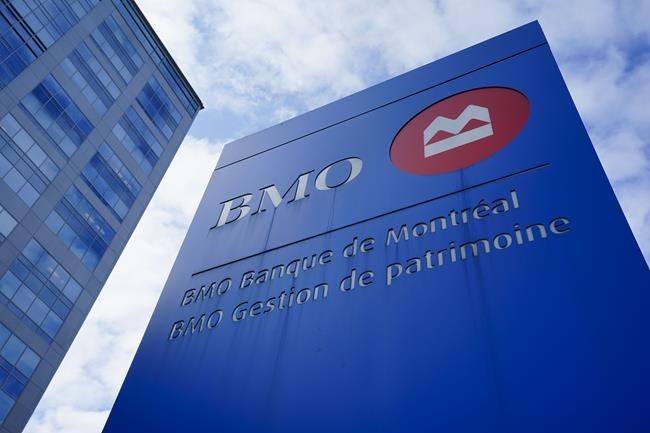TORONTO — Canada's main stock index closed higher along with U.S. markets as investors digested the latest signals on rate increases from central banks.
The S&P/TSX composite index gained 171.56 points Thursday to close at 19,413.00, a day after the Bank of Canada raised its key interest rate by three-quarters of a percentage point and indicated higher interest rates are on the way.
While the rate increase and guidance came in line with general expectations, the higher rates, which banks quickly passed on by raising their prime rates, likely helped push up financials, said Kevin Headland, co-chief investment strategist at Manulife Investment Management.
"My expectation is the banks are ahead today on the rate hike by the Bank of Canada yesterday, therefore giving them wider margins. They're increasing their lending rates, their prime rates, so that gives a bit of more of a spread for them."
The gains also came as Scotiabank CEO Brian Porter talked down the chances of a recession at the bank's financial summit Thursday, noting that there's a disconnect between Main Street and Bay Street in terms of the direction of the economy with business large and small looking to expand.
“People are optimistic about the economy. They're looking to spend and expand. Balance sheets are in good shape. They're not betting their company. They're being thoughtful about how they deploy capital, but they're looking to grow.”
Overall the key financial index on the S&P/TSX gained 1.6 per cent, including a 2.4 per cent gain for Scotiabank.
Gains in the Canadian market were widespread however, will most indexes climbing other than telecoms, which was weighed down by another down day for Rogers Communications Inc. as doubts remain around its takeover of Shaw Communications Inc., while Telus Corp. also dropped 1.3 per cent.
Base metals gained 3.1 per cent after the December copper contract closed up 9.7 cents at US$3.52 a pound, while information technology climbed 1.1 per cent. Gold miners also climbed, including a 1.4 per cent increase for Barrick Gold Corp., despite the December gold contract closing down US$7.60 at US$1,720.20 an ounce.
The energy index was up 0.9 per cent as the October crude contract was up US$1.60 at US$83.54 per barrel and the October natural gas contract was up 7.3 cents at US$7.92 per mmBTU.
Canada's rate hike and climbing energy prices also helped to give the loonie a bit of a boost, trading for 76.24 cents US compared with 75.96 cents US on Wednesday.
U.S. markets climbed as investor perspective shifts following the initial selloff after the Federal Reserve symposium last week, said Headland.
"After Jackson Hole last week, the market obviously had a very negative reaction to Chairman Jerome Powell's speech, but I think after digesting it, it would indicate that his tone really didn't shift."
The Dow Jones industrial average closed up 193.24 points at 31,774.52. The S&P 500 index was up 26.31 points at 4,006.18, while the Nasdaq composite was up 70.23 points at 11,862.13.
The European Central Bank also weighed in on the inflation fight Thursday with a three-quarters of a percentage point increase with plans for more to come.
The move didn't have a major effect on Canadian markets, but inflation and the energy crisis is creating economic instability in that part of the world, said Headland.
"Energy costs are up materially, and unfortunately, any rate policy decisions really does not affect or improve that price pressure. So they're really challenging in terms of their policy right now, and I think that's what's causing some of the the material choppiness or volatility in that area of the world."
This report by The Canadian Press was first published Sept. 8, 2022.
Companies in this story: (TSX:GSPTSE, TSX:CADUSD=X)
The Canadian Press

